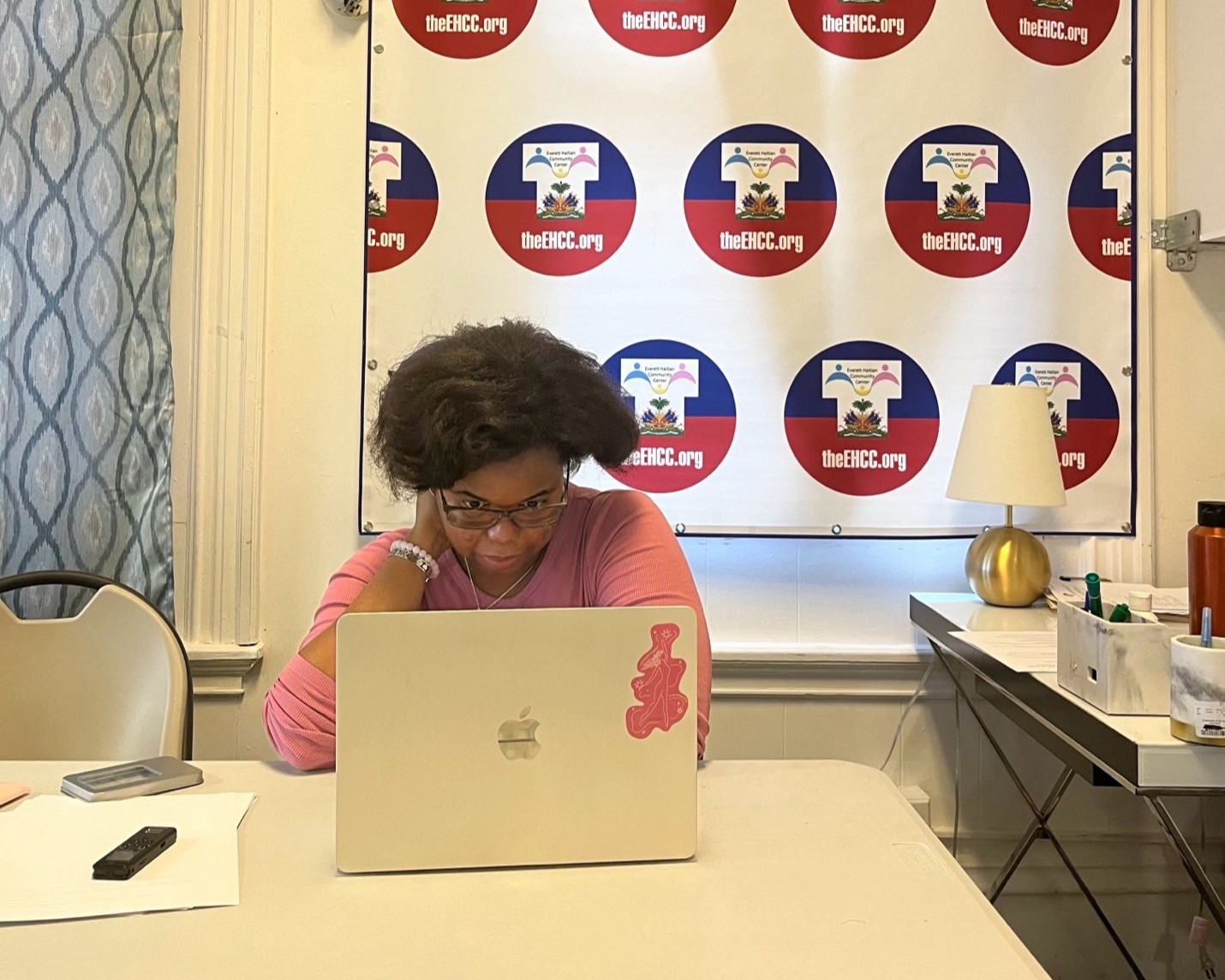Milady spent her fieldwork year exploring how Haitian immigrant families newly arrived in the Boston area access pediatric primary care. Her thesis, Holistic Support and Access to Pediatric Primary Care for the Newly Arrived Haitian Immigrant Children in Boston, focused not only on the logistical and systemic barriers these families face but also on the emotional and cultural support they need during their first months in a new country.
Due to the sensitive nature of her research and the vulnerability of her study population, Milady did not photograph her participants. Instead, she shared an image that deeply moved her: a rally poster from an anti-xenophobia demonstration in late September 2024. The poster showed an outline of the state of Massachusetts with the words, “This home welcomes Immigrants, Refugees, and Asylum Seekers.” For Milady, it captured the emotional core of her project. “These are my people,” she reflected. “This is the message I want to amplify.”
Milady partnered with the Everett Haitian Community Center (EHCC), one of Massachusetts's leading organizations supporting Haitian immigrants. EHCC provided logistical support and a welcoming and private space for interviews. The center’s commitment to addressing the full scope of social determinants of health made it a vital ally in her work. It also served as a reminder of how community-based institutions can anchor healing and hope in moments of transition and hardship.
Much of Milady’s work involved conducting interviews in Haitian Creole and transcribing them, often late at night, in her room, headphones in, eyes on the screen. Though the transcription process could be tedious, she insisted on doing the first round herself to ensure that the tone, nuance, and context of her participants’ stories were preserved before translation. In one photo, a small Haitian flag hangs nearby, a symbol of both home and heartbreak. “Some stories are hard to hear,” she said. “They make me miss home even more, especially given the current situation in Haiti. But these stories are my beacon of light, the reason that I am pushing through the stress of data collection.”
Milady’s research is a testament to care that is not just clinical, but communal. Her fieldwork reminds us that listening can be a form of service, and that healing begins with being seen and heard. In a city that promises to welcome, her work asks what it truly means to belong.
